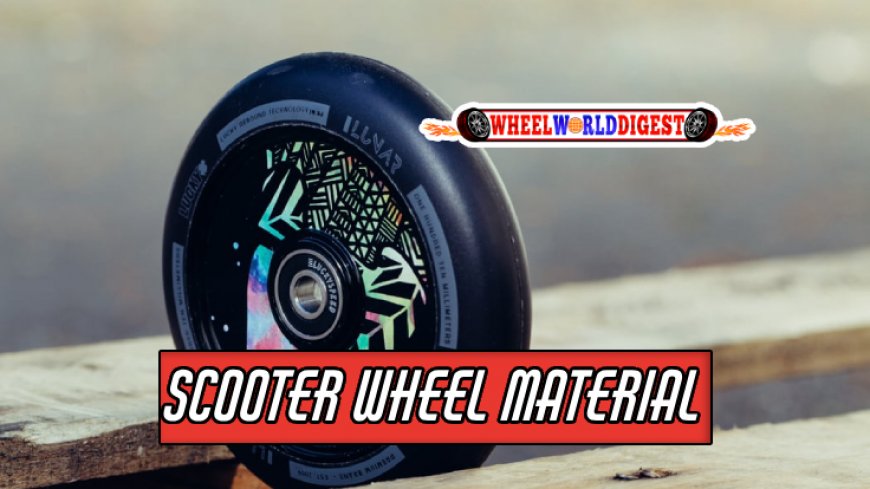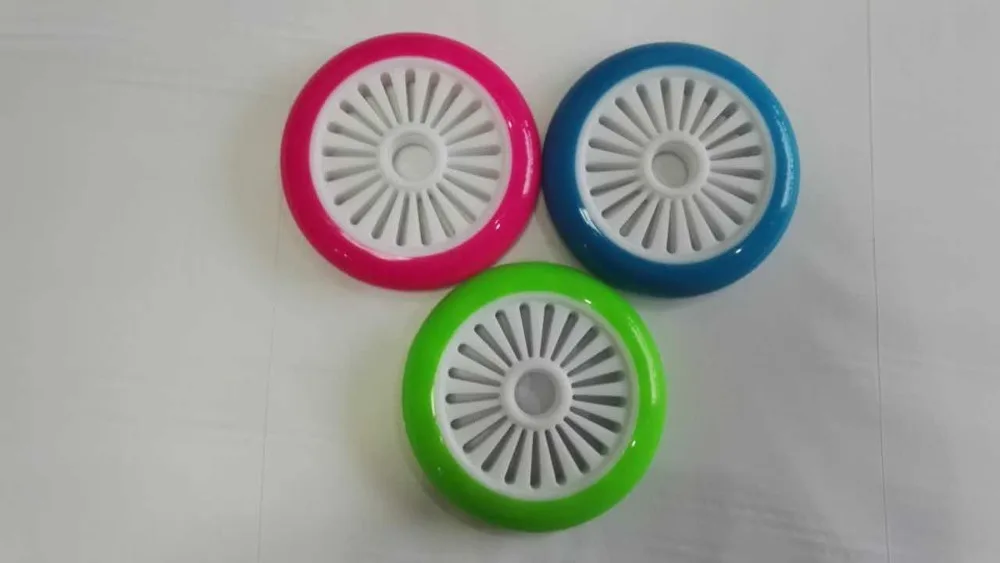Material Dynamics: The Science Behind Scooter Wheels
Delve into the world of scooter wheel materials and their effects on your ride. Knowledge is power. Ride safer, smarter.

Ever pondered what gets the wheels of a scooter turning? Believe it or not, the material of your scooter wheels plays an integral role in your ride’s overall quality, safety, and function. This might sound a tad technical, but bear with us and you’ll become a scooter wheel material pro.
Understanding the Scooter Wheel Material
We deem it necessary to delve into this topic, as understanding the material dynamics of scooter wheels can markedly elevate your riding adventure. Better awareness means safer, smarter decisions!
Table of Contents
- Effects On The Ride
- Most Common Materials Used for Scooter Wheels
- Polyurethane Wheels
- Rubber Wheels
- Plastic Wheels
- Choosing The Right Scooter Wheel Material
- Summation: The Last Spin
Effects On The Ride

The material of your scooter wheel dictates how your ride feels. From the grip to the smoothness, everything is determined by the choice of material. To put it in simple words, the right material can deliver an unmatched riding experience.
Cushioning and Traction
Wheel material impacts cushioning and traction. For instance, rubber provides excellent traction on wet surfaces to keep you safe even during unpredictable weather conditions. Want to glide smoothly over rough terrains? That's where polyurethane wheels shine brightest.
Most Common Materials Used for Scooter Wheels
The most common materials used in scooter wheels actually center around three key substances: polyurethane, rubber, and plastic. Here’s a quick overview for you:
- Polyurethane – An industrial-grade plastic offering swift rides.
- Rubber – Famous for durable and comfortable rides.
- Plastic – Affordable and easily replaceable but lacks longevity.
Polyurethane Wheels
Let’s start with a top favorite among seasoned scooter riders: polyurethane wheels. These wheels are manufactured by injecting liquid polyurethane into a mold, which consequently hardens into a sturdy yet comfortable wheel. Credited with excellent bounce and grip, it’s the go-to wheel for many.
The Pros and Cons
The upsides of polyurethane wheels for scooter -
- Great grip and bounce
- Durable, hard-wearing
- Choice for pro-riders
However, these advantages come with a catch - polyurethane wheels are more expensive than their counterparts.
Rubber Wheels

"Need a smoother ride?" Rubber wheels might just be your answer. Manufactured using natural or synthetic rubber, these wheels truly strike a balance between comfort and durability. They're particularly favored for handling a wide array of terrains - from challenging off-roads to slick city streets.
Why Rubber Scooter Wheels?
Here's why rubber scooter wheels are a popular choice among riders -
- Shock absorption: Rubber naturally cushions the ride, leading to smooth navigation over rough terrains.
- Grip prowess: Rubber wheels offer exceptional grip, making them apt for trick rides and wet conditions.
Despite their super qualities, rubber wheels can wear down faster than polyurethane ones, which could be a potential downside.
Plastic Wheels

Moving away from polyurethane and rubber, let's talk about another common scooter wheel material - plastic. Undoubtedly an economical option, plastic wheels are widely used in budget scooters. Ideal for those who just want to test the waters without investing a lot into their first scooter.
The Bright and Dark Sides of Plastic Wheels
There's a reason plastic wheels have a market of their own. Here are a few:
- Affordability: Plastic wheels are undeniably cheap in price, making them accessible to a broader base of riders.
- Replacement Ease: It's no secret that plastic isn’t the most durable material. However, replacing a damaged wheel is quick, easy, and affordable.
Unfortunately, these wheels lack the durability, traction, and smoothness of polyurethane and rubber counterparts. Thus, they aren’t recommended for serious riders or those planning on performing stunts.
Choosing The Right Scooter Wheel Material

Now that we've covered the basics, how do you select the right scooter wheel material? Well, the answer depends heavily on your riding habits, terrain, and personal preference.
Defining Your Riding Style
Your style of riding can greatly influence your choice of wheel material. If you're into off-road rides or stunts, you’d want a material that offers significant grip and stability. Here, rubber or polyurethane would be ideal. However, if your regular terrain is smooth pavements and your need is just for a casual ride, a cheaper alternative like plastic might suffice.
Quality Vs. Budget
Which is more important- saving money now or investing for the future? Quality and cost often counterbalance each other in the decision process. If you're starting out or want a low-cost option, plastic wheels are your best bet. But, for the long haul, focusing more on quality i.e., rubber or polyurethane would be wise.
Overcoming the Challenges
Every material has its set of advantages and downsides. The reality is no choice is perfect. But understanding the basics and assessing your personal needs can help you make an informed decision that’s right for you.
Summation: The Last Spin
Hopefully, our little journey through scooter wheel materials has left you more enlightened. Remember, when it comes to the material of your scooter wheels, it's about matching the riding style with the material's inherent strengths.
Who knew a seemingly minute part of a scooter - its wheels, had such an in-depth science behind it!
What's Your Reaction?









































































